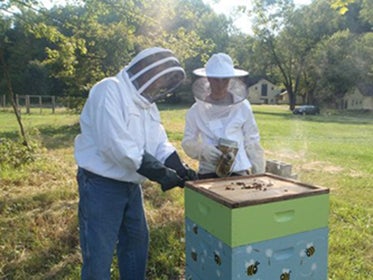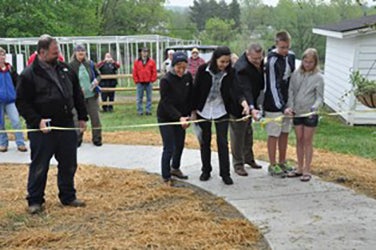Beekeeping and honey production activities started at the farm in the spring of 2011.
The benefit of beekeeping is to increase insect pollination (the transfer of pollen from one flower to another flower). It can increase both the size and quality of individual plants and the crop yield as a whole for the farm's food-producing crops. Honeybees are important pollinators because they can be easily managed and moved to crop sites and typically one colony is used for each acre of land.
In 2012, beekeeping and honey production activities at the farm expanded the research and teaching opportunities in the areas of entomology, animal behavior and food production techniques. Periodically beekeeping are offered. The classes make use of the A. I. Root Apiary and the Honey House.
In the past Dadant & Sons, Inc., a staple in the beekeeping community sponsored the Farm's program through in-kind donations. Such contributions help this program to continue to grow and to offer greater educational opportunities to CWRU staff, students, and the community at large.
In spring 2013, the A.I. Root (rootcandles.com), originally a beekeeping company that is now known for its beeswax candles, funded the installation of the A.I. Root Observational Apiary and Pollinator Garden. A 60 foot wall with a viewing screen encloses eight honeybee hives surrounded by a field of clover and a pollinator garden, allowing visitors and classes to watch honeybee activity from a safe distance. A sidewalk from the Honey House up to and along the viewing wall, making this new addition to the Farm open and accessible to more people. This new site was officially unveiled May 11, 2013, at the 3rd Annual Honeybee Conference and Field Day of the Greater Cleveland Beekeeping Association.



